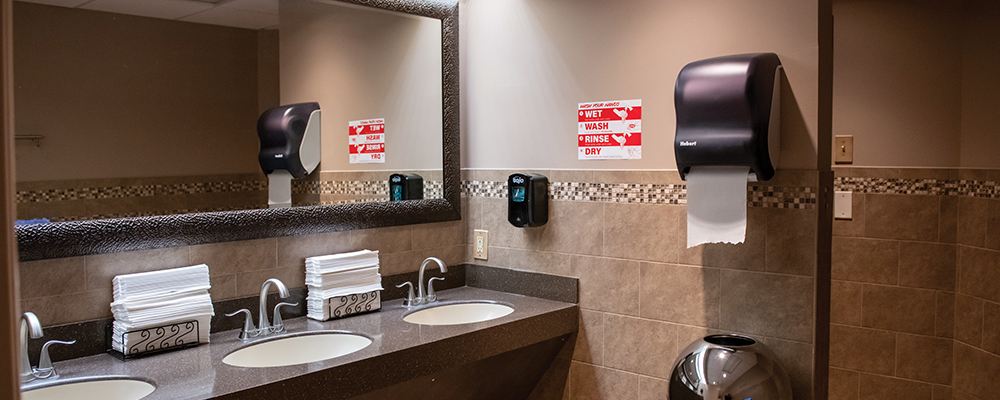Avoid Fines: Create a Policy in Two Simple Steps
Laws from the FDA have already been created to make sure businesses are maintaining standards of cleanliness. It may come as no surprise that one of these laws enforces proper and frequent handwashing by employees.
Since your whole staff has to be on the same page as you, simply posting reminders isn’t going to cut it. To make everyday cleanliness and daily handwashing a staple in your business, we recommend creating an official policy so everyone onboard has a clear view of your vision and expectations.
In the long run, creating a policy can save you ample amounts of time and even money by avoiding unwanted sanitation fines. To stay in-the-know, remember that hand washing regulations are updated every four years. Stay informed by visiting federal regulator’s websites like the FDA or CDC website.
Ready to write your policy? Here’s a sample copy to get you started:
(Step 1: State Your Intent)
Our Company has adopted handwashing policies to ensure that all measures are taken to prevent the spread of bacteria and diseases within the workplace, and to ensure the ongoing health and safety of our employees and customers.
(Step 2: State Your Guidelines)
Effective immediately, the following policy applicable to all company employees will adhere to the following guidelines:
- All employees will self-monitor for symptoms of illness prior to work arrival.
- Employees who have any symptoms of fever OR respiratory illness will not be allowed to work as reinforced by the employee illness reporting agreement.
- Employees must notify person in charge of establishment of specific symptoms and illnesses, and that the person in charge will assure that employee’s exclusion or restriction from work duties to prevent transmission of foodborne illnesses.
- Employees sign an employee illness agreement indicating they understand the policy and agree to follow the guidelines.






